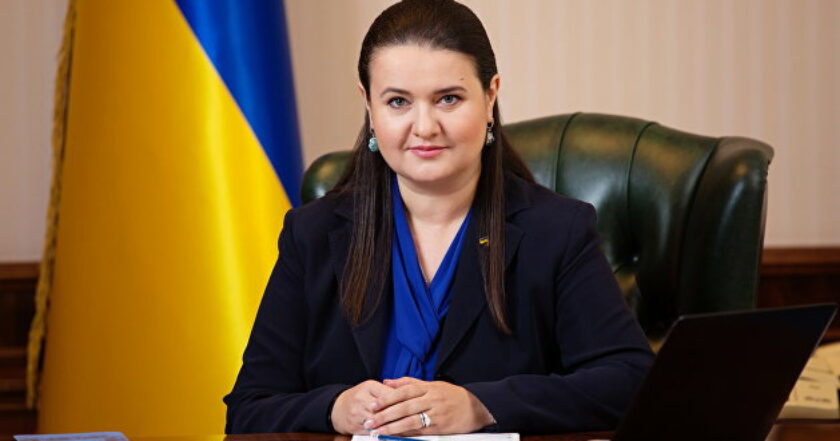US Senate to vote on Ukraine aid bill on February 7 – ambassador

Ukrainian Ambassador to the United States, Oksana Markarova, has announced that on February 7, the US Senate may vote on a bill concerning the international aid package, which includes assistance for Ukraine.
According to Markarova, the release of the bill enables the previously announced vote by Senate Democratic leader Chuck Schumer on February 5th "to end debates on the legislative instrument for the international aid and migration reform package, with the vote on the actual package scheduled for February 7," Rubryka reports.
She also confirmed details about the allocation of funding in the support package for Ukraine, which includes $60 billion for the country.
The US wants to allocate $50.43 billion for defense expenditures, including $48.4 billion to the US Department of Defense to further support Ukraine in its fight against Russia until December 31, 2024:
- $19.85 billion for replenishing American military equipment and technology provided to Ukraine from US Department of Defense stocks;
- $13.8 billion for rearming Ukraine through the purchase of weapons and ammunition from the US defense-industrial base;
- $14.8 billion for military training, intelligence exchange, strengthening presence in the European Command area of responsibility, and other support measures;
- $8 million for the Department of Defense Inspector General to continue oversight of US assistance to Ukraine.
The package also envisages $1.6 billion for Foreign Military Financing (FMF) to meet the needs of Ukraine and other regional partners in air defense, artillery, maritime security, technical maintenance, and support.
$300 million in assistance to Ukraine will be used for defending its borders and promoting the rule of law, and $100 million will be directed to demining programs, counterterrorism, and non-proliferation of weapons of mass destruction.
For the economic, financial, civil, and nuclear security of Ukraine, the US allocates $9.654 billion, including:
- $7.85 billion for direct budgetary support to Ukraine. The bill prohibits reimbursement of pensions through direct US budgetary support;
- $1.58 billion for building a self-sufficient Ukrainian economy in priority sectors such as transportation and energy, as well as private sector development;
- $25 million to be allocated to the USAID Office of Transition Initiatives to support efforts to restore and enhance resilience in Moldova and Ukrainian territories reclaimed from Russia;
- $50 million for responding to the situation in the global food security sector, particularly as a result of Russia's invasion of Ukraine;
- $149 million for the US National Nuclear Security Administration.
On Sunday, the US Senate introduced a bipartisan border security bill totaling $118 billion, including assistance for Ukraine and Israel.
What we know about US aid delay
The United States has run out of money designated for military aid to Ukraine. To allocate more funding, President Joe Biden requested over $100 billion from Congress, including over $60 billion for Ukraine.
Currently, Congress is divided on this package, as Republicans demand adding proposals to enhance border security, particularly with Mexico. Biden's request has yet to be approved.
In turn, Biden stressed the importance of Congress making decisions to provide Ukraine with necessary resources, including air defense and artillery, to protect against Russian invasion.
On January 17, US President Joe Biden discussed providing financial and military support to Ukraine with representatives from both houses of Congress. The White House urged swift approval of the $61.3 billion aid package to Ukraine and stressed the importance of strengthening border protection from illegal migrants from Mexico.
Previously, Biden stated his readiness for significant changes in immigration policy and urged Republicans not to block aid to Ukraine, warning that failure to do so would result in even greater costs.
Recently, congressmen have been sending cautious signals that both parties are close to reaching a compromise. However, House Republican Speaker Mike Johnson stated the day before that the deal was "dead."
Meanwhile, possible presidential candidate Donald Trump has also begun pressuring Republicans not to strike the current compromise deal.
Nevertheless, Minister of Foreign Affairs Dmytro Kuleba reiterated his confidence that the US Congress would approve additional funding for Ukraine despite discrepancies between representatives of the two parties on immigration issues.





















































